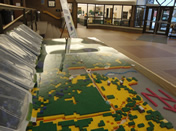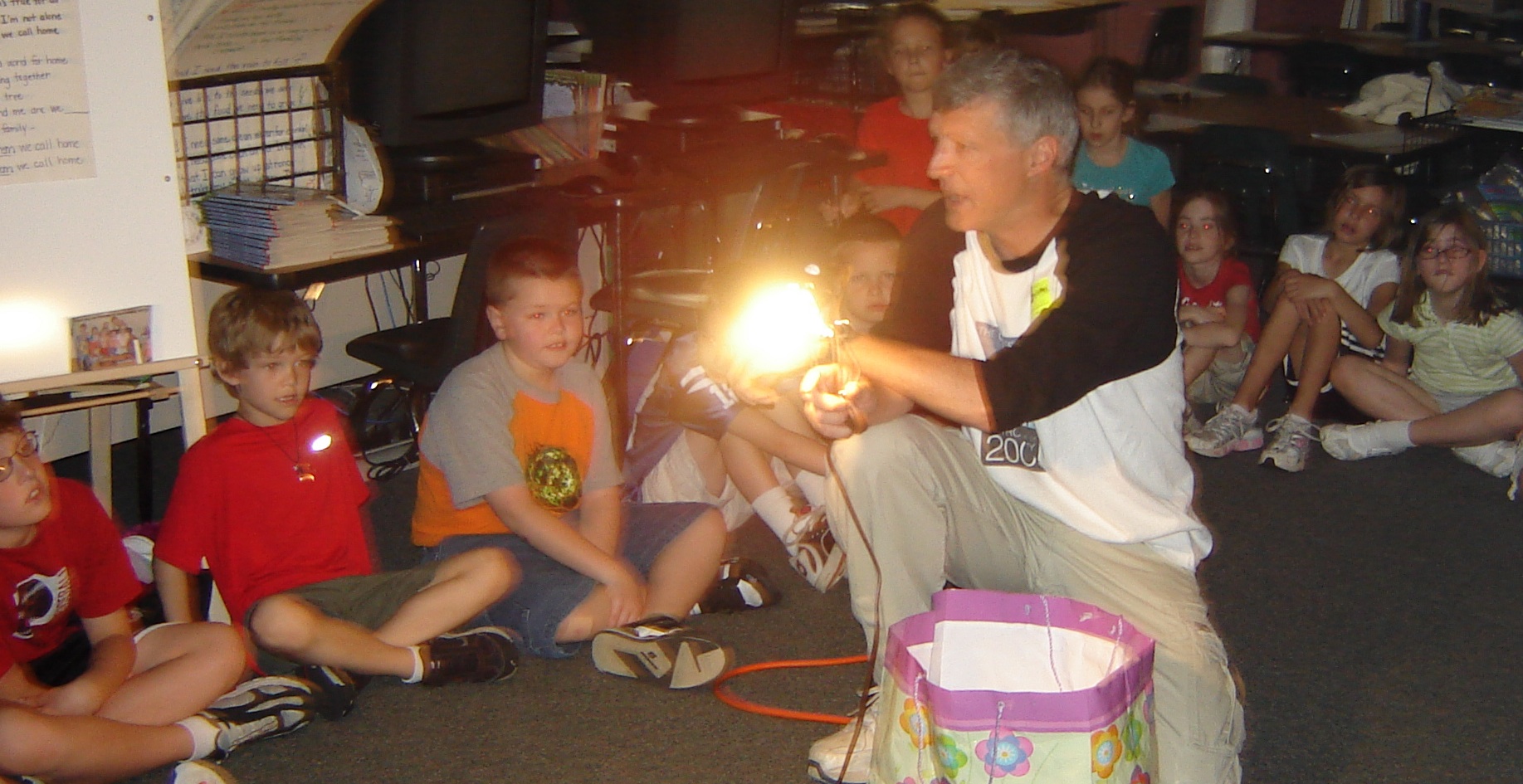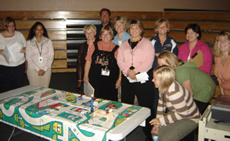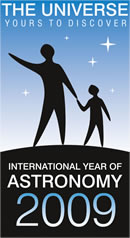 3D Model on Display at Northpoint
3D Model on Display at Northpoint
Students built a model of the results of the Let There Be Night experiment using over 35,000 LEGO blocks to represent the ideal night sky. From that 3D map, over 12,000 blocks had to be removed to represent the night sky lost to light pollution, according to over 3,400 student observations. The 3D model is displayed at Northpoint, right, October 26-29, 2009.
LTBN launched on March 14, 2009, and some Northpoint students went over to Mary Frank Elementary School to look through a telescope at Mary Frank before taking SQM readings. Every night some SLT members have shown up with three Sky Quality Meters to quantify the brightness of the sky.
 Honoring the Night on Earth Day
Honoring the Night on Earth Day
On Earth Day 2008, Northpoint students looked into the impact of glare, light trespass, and sky glow on the nocturnal environment. We discussed how some nocturnal animals need only a little bit of light to see at night, which allows them to move safely under the cover of darkness. However, with the unrelenting brightness of artificial lights all night long, the predator/prey relationship can be disrupted.
To simulate the experience of a night critter trying to forage for food near an unshielded light, a student on the perimeter of a circle tried to venture closer to a source of food. However, a predatory bird (well portrayed by Mrs. Lorraine White) was able to see the young critter and kept her from reaching her meal.
This trial run was later modified and turned into the Turtle Hatch Activity. Thank you, Mrs. White's 2008 class.
 Northpoint Teachers Have Key Role
Northpoint Teachers Have Key Role
On October 9, 2008, Northpoint teachers prepare for LTBN at the first of two in-service sessions. The support of teachers is paramount to the success of this community-wide science experiment.
